With the new Premier League season just around the corner and a host of familiar and new players gracing the league, there’s plenty of stories to be written, metaphorically and literally. Here, we take a look at each club and pick an already published autobiography from a player of the Premier League era that’s worth a read and one from the current crop that would appeal.
Southampton
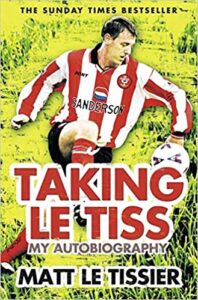 Past: Southampton go into 2021/22 in their tenth straight campaign in the Premier League. When the league kicked off in 1992, the Saints enjoyed twelve seasons at the top, but their thirteenth proved unlucky as they were relegated in 20th place in 2005. Worse was yet to come as four seasons in the Championship ended in relegation to League One in 2009. But it was only a brief stay with Nigel Adkins steering the Saints back to the Championship in two seasons, with the help of Rickie Lambert’s goals, before a second consecutive promotion from the Championship back to the Premier League in 2011/12. As far as past players go, the Saints boast the likes of Gareth Bale, Sadio Mane and Virgil van Dijk, but there’s only really one man who’s synonymous with the South Coast side – Matt Le Tissier. Le Tissier spent all of his career at Southampton, having joined the youth set-up in 1985, eventually bidding St Mary’s farewell seventeen years later. He holds the accolade of the first midfielder to score 100 Premier League goals and was included in the 1994/95 PFA Team of the Year. His wittily titled Taking Le Tiss was published in 2009.
Past: Southampton go into 2021/22 in their tenth straight campaign in the Premier League. When the league kicked off in 1992, the Saints enjoyed twelve seasons at the top, but their thirteenth proved unlucky as they were relegated in 20th place in 2005. Worse was yet to come as four seasons in the Championship ended in relegation to League One in 2009. But it was only a brief stay with Nigel Adkins steering the Saints back to the Championship in two seasons, with the help of Rickie Lambert’s goals, before a second consecutive promotion from the Championship back to the Premier League in 2011/12. As far as past players go, the Saints boast the likes of Gareth Bale, Sadio Mane and Virgil van Dijk, but there’s only really one man who’s synonymous with the South Coast side – Matt Le Tissier. Le Tissier spent all of his career at Southampton, having joined the youth set-up in 1985, eventually bidding St Mary’s farewell seventeen years later. He holds the accolade of the first midfielder to score 100 Premier League goals and was included in the 1994/95 PFA Team of the Year. His wittily titled Taking Le Tiss was published in 2009.
Present: The departure of Danny Ings to Villa this summer may have caught many out, and the Saints will be keen to hold on to their other star men as they head into the season, none more so than James Ward-Prowse, who, like Le Tissier, is currently a one-club man, racking up a decade in the senior team and almost twenty years at the club in total. He would make a very good case for a Southampton autobiography. Young guns like Kyle Walker Peters and Nathan Tella are ones to watch, while Che Adams has begun to make his mark. However, with his return to his boyhood club, initially on loan in 2020, before making the deal permanent, Theo Walcott’s journey would make for an interesting read. Although an autobiography was published in 2011, Theo: Growing Up Fast, the following decade has been as eventful as his early years and at thirty-two he’s well placed to look back on a career that started in earnest at just sixteen. Indeed, sixteen years in the Premier League is certainly something to write home about.
Tottenham Hotspur
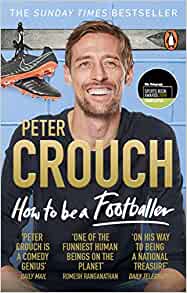 Past: One of the Premier League mainstays, Tottenham’s lowest finish in the top flight came in 1993/94 when they ended up in fifteenth. The nineties and early 2000s saw them finish in and around mid-table, but by 2006 they had become regular top-half finishers and participants in Europe. Major trophies have largely eluded the North London side, with just the League Cup in 2008 to their name in recent times, although a Champions League final was on the cards in 2019, but they came unstuck in an all-English tie against Liverpool. New manager Nuno Espirito Santo, brought in this summer, has begun to ring the changes, but the football world’s eyes will be singularly on the future of Harry Kane. And he’s not the only iconic marksman that Spurs have had in the Premier League era, but, interestingly, neither Robbie Keane nor Jermain Defoe, to name but two, have published autobiographies yet, but with Defoe still banging in the goals for Rangers, there’s plenty of time for that. Similarly, perhaps Tottenham’s biggest ever superstar, or certainly their biggest ever money-earner, Gareth Bale hasn’t yet put pen to paper on his momentous career, but between Wales and Real Madrid, there’s still presumably lots to be written. In terms of those with autobiographies already published, both Luka Modric and Ledley King options are available, but there are few better reads out there across the entirety of the football book world than Peter Crouch’s How To Be A Footballer and I, Robot, both of which benefit from Crouch’s trademark humour. Better yet, a third book looks slated for release next year.
Past: One of the Premier League mainstays, Tottenham’s lowest finish in the top flight came in 1993/94 when they ended up in fifteenth. The nineties and early 2000s saw them finish in and around mid-table, but by 2006 they had become regular top-half finishers and participants in Europe. Major trophies have largely eluded the North London side, with just the League Cup in 2008 to their name in recent times, although a Champions League final was on the cards in 2019, but they came unstuck in an all-English tie against Liverpool. New manager Nuno Espirito Santo, brought in this summer, has begun to ring the changes, but the football world’s eyes will be singularly on the future of Harry Kane. And he’s not the only iconic marksman that Spurs have had in the Premier League era, but, interestingly, neither Robbie Keane nor Jermain Defoe, to name but two, have published autobiographies yet, but with Defoe still banging in the goals for Rangers, there’s plenty of time for that. Similarly, perhaps Tottenham’s biggest ever superstar, or certainly their biggest ever money-earner, Gareth Bale hasn’t yet put pen to paper on his momentous career, but between Wales and Real Madrid, there’s still presumably lots to be written. In terms of those with autobiographies already published, both Luka Modric and Ledley King options are available, but there are few better reads out there across the entirety of the football book world than Peter Crouch’s How To Be A Footballer and I, Robot, both of which benefit from Crouch’s trademark humour. Better yet, a third book looks slated for release next year.
Present: As England captain and current Premier League Golden Boot holder, it is hard to look beyond Harry Kane for a future autobiography regardless of what the next couple of weeks bring. But as the transfer saga rumbles on, let’s turn our attention to other Spurs players. Eric Dier and Hugo Lloris have been Tottenham mainstays for seven and nine years respectively. Dier’s start offered a somewhat different route to a lot of England players, having begun his journey in Portugal with Sporting CP, before moving to England with Tottenham. Lloris, meanwhile, began in his native France with Nice and latterly Lyon but has spent the bulk of his career in the Premier League. As captain of France, he led Les Bleus to both the final at Euro 2016, eventually finishing runners-up, before going one better two years later at the World Cup in Russia, where France triumphed over Croatia. Whilst Dele Alli has found himself on the fringes in recent times, at still only 25, there is plenty more to come from the MK Dons youngster. A mercurial talent Alli was soon spotted at the League One side and was named PFA Young Player of the Year in his first two consecutive seasons in the Premier League. He has played at both a Euros and World Cup, racking up almost 40 caps, but missed out on this summer’s entertainment. But when it comes to the final pick, it has to be Son Heung-Min who has taken the Premier League by storm since his arrival in 2015, growing into one of the league’s top performers, winning the Premier League Player of the Month three times, Goal of the Month three times, Goal of the Season once and the Puskas Award in 2020. He has notched various awards as Asian International Player of the Year and Korean Player of the Year.
Watford
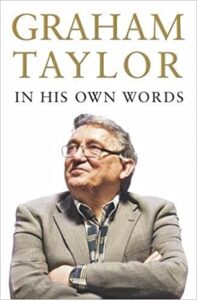 Past: In its 29 seasons, Watford have featured in the Premier League for seven campaigns. In 1992, they were playing in Division 1 and fell to Division 2 in 1996, before consecutive promotions in 1998 and 1999 saw them join the top flight for the first time. However, it was the briefest of stays with the Hornets immediately dropping back down. Several seasons in Division 1/Championship followed, before a return to the Premier League in 2006. But history was to repeat itself with the London outfit managing just the single campaign. Eight years in the Championship followed before Watford once again made it to the top, and this time their stay extended across five seasons before their relegation in 2020. However, the Hornets bounced back at the first time of asking, finishing second last season to begin anew in the Premier League this time out. Like many teams outside of the so-called big six, Watford players haven’t typically been the subject of autobiographies. However, one man central to Watford’s past has penned his life In His Own Words – the late Graham Taylor. Manager of the Hornets for ten years, he led Watford from the Fourth Division to the First in five years and three years later was England manager. He returned to Watford for a second spell in charge from 1996 to 2001.
Past: In its 29 seasons, Watford have featured in the Premier League for seven campaigns. In 1992, they were playing in Division 1 and fell to Division 2 in 1996, before consecutive promotions in 1998 and 1999 saw them join the top flight for the first time. However, it was the briefest of stays with the Hornets immediately dropping back down. Several seasons in Division 1/Championship followed, before a return to the Premier League in 2006. But history was to repeat itself with the London outfit managing just the single campaign. Eight years in the Championship followed before Watford once again made it to the top, and this time their stay extended across five seasons before their relegation in 2020. However, the Hornets bounced back at the first time of asking, finishing second last season to begin anew in the Premier League this time out. Like many teams outside of the so-called big six, Watford players haven’t typically been the subject of autobiographies. However, one man central to Watford’s past has penned his life In His Own Words – the late Graham Taylor. Manager of the Hornets for ten years, he led Watford from the Fourth Division to the First in five years and three years later was England manager. He returned to Watford for a second spell in charge from 1996 to 2001.
Present: There is a case for saying that two of Watford’s best players are part of the current squad and both would be suitable picks for an autobiography. In fact, Cassell have beaten me to the punch, by landing Troy Deeney’s memoir, Redemption, which will be published next month and will chart his footballing career from Chelmsley Town, whilst training as a bricklayer, to becoming captain of a Premier League side and leading the line for Watford for over a decade. The second man to rival Deeney’s charge is Watford’s current number 1. Ben Foster had two loan seasons at Watford, picking up Player of the Season in 2006/2007, before moving there on a permanent basis in 2018. His has been a meandering journey that saw him start out in Southern League Division One West for Racing Club Warwick whilst also training as a chef. Turning professional in 2001, he made the move to Stoke and saw time on loan at Bristol City, Tiverton Town, Stafford Rangers, Kidderminster Harriers and Wrexham. In 2005 came the biggest move of his career as he was signed by Manchester United, but appearances were hard to come by in his five years at Old Trafford, two seasons of which were spent on loan at Watford. Interim moves to Birmingham City and West Brom followed, but Foster has taken to life as Watford’s number one.
West Ham United
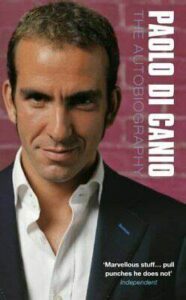 Past: Despite starting the Premier League era outside of the top flight, West Ham soon rectified that with automatic promotion at the end of that first campaign in 1993. Ten years of top-flight football followed, which included a season in Europe. The Hammers have twice been relegated in subsequent years, first in 2003 and again in 2012, but their time out of the Premier League has been minimal, with them bouncing back quickly on both occasions. The new season is their tenth consecutive in the Premier League since their return to the top in 2012, with a sixth-placed finish last time out signalling a marked improvement on previous seasons. When it comes to former players, West Ham have boasted some big names, including Frank Lampard, Rio Ferdinand and Michael Carrick who have all gone on to pen autobiographies, whilst other Hammers graduates are still absent from the bookshelves. Whilst Tony Cottee’s affiliation with the club spans almost a decade, he spent just two years with the Hammers in the Premier League era and released his autobiography, centred on the club, in 2012. Paolo Di Canio may not have been at West Ham as long as Cottee but his legacy continues. Few can forget his goal against Wimbledon that is one of the iconic moments in the league’s history and earnt Di Canio BBC Goal of the Season and Hammer of the Year. Although he never represented Italy at senior level, Di Canio’s career saw him represent some of the biggest names in Serie A, where he won the league and UEFA cup. The Inside Story told in Paolo Di Canio: The Autobiography was published in 2001.
Past: Despite starting the Premier League era outside of the top flight, West Ham soon rectified that with automatic promotion at the end of that first campaign in 1993. Ten years of top-flight football followed, which included a season in Europe. The Hammers have twice been relegated in subsequent years, first in 2003 and again in 2012, but their time out of the Premier League has been minimal, with them bouncing back quickly on both occasions. The new season is their tenth consecutive in the Premier League since their return to the top in 2012, with a sixth-placed finish last time out signalling a marked improvement on previous seasons. When it comes to former players, West Ham have boasted some big names, including Frank Lampard, Rio Ferdinand and Michael Carrick who have all gone on to pen autobiographies, whilst other Hammers graduates are still absent from the bookshelves. Whilst Tony Cottee’s affiliation with the club spans almost a decade, he spent just two years with the Hammers in the Premier League era and released his autobiography, centred on the club, in 2012. Paolo Di Canio may not have been at West Ham as long as Cottee but his legacy continues. Few can forget his goal against Wimbledon that is one of the iconic moments in the league’s history and earnt Di Canio BBC Goal of the Season and Hammer of the Year. Although he never represented Italy at senior level, Di Canio’s career saw him represent some of the biggest names in Serie A, where he won the league and UEFA cup. The Inside Story told in Paolo Di Canio: The Autobiography was published in 2001.
Present: It would be relatively easy to make a case for a number of current West Ham players: Lukasz Fabianski who started off at Lech Poznan before breaking into the Premier League at Arsenal; Craig Dawson whose circuitous journey to the top started off at Radcliffe Borough; New Zealand captain Winston Reid who represented his nation at this summer’s Olympics; Michail Antonio who has been the Hammers top scorer in the last two seasons (joint with Tomas Soucek in 2020/21); and despite being 21, who can rule out Declan Rice, who as well as pushing himself into the England spotlight in recent seasons also has the habit of becoming a meme. But there’s no denying that really there’s only one name when it comes down to it: Mark Noble – nicknamed Mr West Ham. Indeed, despite brief loans at Hull and Ipswich Town and an early blooding at Arsenal, Noble has been a part of the furniture at West Ham since 2000 – over twenty years. With players barely seeing out contracts these days, Noble has put in enough service for the Hammers for two testimonials, but prior to the coming season he announced that 2020/21 would be his last at West Ham, having racked up over 400 appearances. It remains to be seen what Noble will do after he’s hung up his boots, but publishers may just want to get a phone call in early.
Wolverhampton Wanderers
 Past: Wolvers were one of the founding members of the Football League in 1888 and have had some memorable moments in the sun in their 140-plus history. When the Premier League kicked off, however, Wolves weren’t at the top any longer and spent the first eleven seasons in Division 1. A brief foray into the top flight came in 2003/04, but it was back to the Championship for another five seasons before Wolves got their second shot at the big time. Their stay lasted three seasons, but subsequent relegations saw them drop down to the third tier in 2013. The Midlands men bounced back straight away and with new ownership and management in charge made a concerted push for the Premier League, which paid dividends in 2018. Wolves’ return to the top flight saw them secure Europa League football at the first time of asking and now new manager Bruno Lage will be looking to bring the European nights back to Molineux. When it comes to Wolves’ greats in the Premier League era, despite never having experienced the top flight himself, Steve Bull remains a legend for a generation of supporters and his book My Memories of Wolves was released in 2003. Top pick, however, goes to Carl Ikeme, whose book Why Not Me was published in 2019 and charts the former goalkeeper’s biggest battle, off the pitch, with leukaemia.
Past: Wolvers were one of the founding members of the Football League in 1888 and have had some memorable moments in the sun in their 140-plus history. When the Premier League kicked off, however, Wolves weren’t at the top any longer and spent the first eleven seasons in Division 1. A brief foray into the top flight came in 2003/04, but it was back to the Championship for another five seasons before Wolves got their second shot at the big time. Their stay lasted three seasons, but subsequent relegations saw them drop down to the third tier in 2013. The Midlands men bounced back straight away and with new ownership and management in charge made a concerted push for the Premier League, which paid dividends in 2018. Wolves’ return to the top flight saw them secure Europa League football at the first time of asking and now new manager Bruno Lage will be looking to bring the European nights back to Molineux. When it comes to Wolves’ greats in the Premier League era, despite never having experienced the top flight himself, Steve Bull remains a legend for a generation of supporters and his book My Memories of Wolves was released in 2003. Top pick, however, goes to Carl Ikeme, whose book Why Not Me was published in 2019 and charts the former goalkeeper’s biggest battle, off the pitch, with leukaemia.
Present: Since stepping up to the Premier League in 2019, Wolves have caught many an eye, thanks to an impressive roster of players. Ruben Neves, Adama Traore and Raul Jimenez are amongst the star men at Molineux, but stalwarts like Romain Saiss and Willy Boly have been an integral part of their journey into the Premier League. Whilst talented youngsters Pedro Neto and Rayan Ait-Nouri are ones for the future, few players come more experienced than Wolves’ midfield maestro Joao Moutinho, who boasts several league titles in Portugal and one in France, the UEFA Cup and European Championship. But when it comes to wresting a publishing opportunity away from Moutinho, Conor Coady is the man. The former Liverpool youngster may have felt his opportunity for the top flight had slipped away when he was released by the Reds in 2014, but he’s taken his chance at Wolves with both hands. A natural captain and reconfigured as a central defender, Coady is very much at place in the top flight, and equally in the England set-up. Despite missing out on minutes at this summer’s Euros, the former England U20 captain is clearly an asset to any team and his post-match conferences and appearances on Monday Night Football also highlight his ease and warmth. A publisher’s dream, I imagine.
 For me, a great autobiography gives a reader a really authentic, honest insight into the individual and helps them understand that person more. When the subject of the autobiography is particularly complex and nuanced and someone you haven’t necessarily been able to connect with or relate to before, yet you come away from the book with recognition and perspective, that’s all the more telling of a successful autobiography, and in that respect Troy Deeney’s Redemption excels. Deeney is one of those players that is perhaps largely misunderstood, divisive and dismissed for those without a Watford affiliation and, certainly, I would be guilty of being drawn into this narrative, so I was really intrigued to read this book and came away from it with genuine renewed understanding for Deeney.
For me, a great autobiography gives a reader a really authentic, honest insight into the individual and helps them understand that person more. When the subject of the autobiography is particularly complex and nuanced and someone you haven’t necessarily been able to connect with or relate to before, yet you come away from the book with recognition and perspective, that’s all the more telling of a successful autobiography, and in that respect Troy Deeney’s Redemption excels. Deeney is one of those players that is perhaps largely misunderstood, divisive and dismissed for those without a Watford affiliation and, certainly, I would be guilty of being drawn into this narrative, so I was really intrigued to read this book and came away from it with genuine renewed understanding for Deeney. Past: Southampton go into 2021/22 in their tenth straight campaign in the Premier League. When the league kicked off in 1992, the Saints enjoyed twelve seasons at the top, but their thirteenth proved unlucky as they were relegated in 20th place in 2005. Worse was yet to come as four seasons in the Championship ended in relegation to League One in 2009. But it was only a brief stay with Nigel Adkins steering the Saints back to the Championship in two seasons, with the help of Rickie Lambert’s goals, before a second consecutive promotion from the Championship back to the Premier League in 2011/12. As far as past players go, the Saints boast the likes of Gareth Bale, Sadio Mane and Virgil van Dijk, but there’s only really one man who’s synonymous with the South Coast side – Matt Le Tissier. Le Tissier spent all of his career at Southampton, having joined the youth set-up in 1985, eventually bidding St Mary’s farewell seventeen years later. He holds the accolade of the first midfielder to score 100 Premier League goals and was included in the 1994/95 PFA Team of the Year. His wittily titled Taking Le Tiss was published in 2009.
Past: Southampton go into 2021/22 in their tenth straight campaign in the Premier League. When the league kicked off in 1992, the Saints enjoyed twelve seasons at the top, but their thirteenth proved unlucky as they were relegated in 20th place in 2005. Worse was yet to come as four seasons in the Championship ended in relegation to League One in 2009. But it was only a brief stay with Nigel Adkins steering the Saints back to the Championship in two seasons, with the help of Rickie Lambert’s goals, before a second consecutive promotion from the Championship back to the Premier League in 2011/12. As far as past players go, the Saints boast the likes of Gareth Bale, Sadio Mane and Virgil van Dijk, but there’s only really one man who’s synonymous with the South Coast side – Matt Le Tissier. Le Tissier spent all of his career at Southampton, having joined the youth set-up in 1985, eventually bidding St Mary’s farewell seventeen years later. He holds the accolade of the first midfielder to score 100 Premier League goals and was included in the 1994/95 PFA Team of the Year. His wittily titled Taking Le Tiss was published in 2009. Past: One of the Premier League mainstays, Tottenham’s lowest finish in the top flight came in 1993/94 when they ended up in fifteenth. The nineties and early 2000s saw them finish in and around mid-table, but by 2006 they had become regular top-half finishers and participants in Europe. Major trophies have largely eluded the North London side, with just the League Cup in 2008 to their name in recent times, although a Champions League final was on the cards in 2019, but they came unstuck in an all-English tie against Liverpool. New manager Nuno Espirito Santo, brought in this summer, has begun to ring the changes, but the football world’s eyes will be singularly on the future of Harry Kane. And he’s not the only iconic marksman that Spurs have had in the Premier League era, but, interestingly, neither Robbie Keane nor Jermain Defoe, to name but two, have published autobiographies yet, but with Defoe still banging in the goals for Rangers, there’s plenty of time for that. Similarly, perhaps Tottenham’s biggest ever superstar, or certainly their biggest ever money-earner, Gareth Bale hasn’t yet put pen to paper on his momentous career, but between Wales and Real Madrid, there’s still presumably lots to be written. In terms of those with autobiographies already published, both Luka Modric and Ledley King options are available, but there are few better reads out there across the entirety of the football book world than Peter Crouch’s How To Be A Footballer and I, Robot, both of which benefit from Crouch’s trademark humour. Better yet, a third book looks slated for release next year.
Past: One of the Premier League mainstays, Tottenham’s lowest finish in the top flight came in 1993/94 when they ended up in fifteenth. The nineties and early 2000s saw them finish in and around mid-table, but by 2006 they had become regular top-half finishers and participants in Europe. Major trophies have largely eluded the North London side, with just the League Cup in 2008 to their name in recent times, although a Champions League final was on the cards in 2019, but they came unstuck in an all-English tie against Liverpool. New manager Nuno Espirito Santo, brought in this summer, has begun to ring the changes, but the football world’s eyes will be singularly on the future of Harry Kane. And he’s not the only iconic marksman that Spurs have had in the Premier League era, but, interestingly, neither Robbie Keane nor Jermain Defoe, to name but two, have published autobiographies yet, but with Defoe still banging in the goals for Rangers, there’s plenty of time for that. Similarly, perhaps Tottenham’s biggest ever superstar, or certainly their biggest ever money-earner, Gareth Bale hasn’t yet put pen to paper on his momentous career, but between Wales and Real Madrid, there’s still presumably lots to be written. In terms of those with autobiographies already published, both Luka Modric and Ledley King options are available, but there are few better reads out there across the entirety of the football book world than Peter Crouch’s How To Be A Footballer and I, Robot, both of which benefit from Crouch’s trademark humour. Better yet, a third book looks slated for release next year. Past: In its 29 seasons, Watford have featured in the Premier League for seven campaigns. In 1992, they were playing in Division 1 and fell to Division 2 in 1996, before consecutive promotions in 1998 and 1999 saw them join the top flight for the first time. However, it was the briefest of stays with the Hornets immediately dropping back down. Several seasons in Division 1/Championship followed, before a return to the Premier League in 2006. But history was to repeat itself with the London outfit managing just the single campaign. Eight years in the Championship followed before Watford once again made it to the top, and this time their stay extended across five seasons before their relegation in 2020. However, the Hornets bounced back at the first time of asking, finishing second last season to begin anew in the Premier League this time out. Like many teams outside of the so-called big six, Watford players haven’t typically been the subject of autobiographies. However, one man central to Watford’s past has penned his life In His Own Words – the late Graham Taylor. Manager of the Hornets for ten years, he led Watford from the Fourth Division to the First in five years and three years later was England manager. He returned to Watford for a second spell in charge from 1996 to 2001.
Past: In its 29 seasons, Watford have featured in the Premier League for seven campaigns. In 1992, they were playing in Division 1 and fell to Division 2 in 1996, before consecutive promotions in 1998 and 1999 saw them join the top flight for the first time. However, it was the briefest of stays with the Hornets immediately dropping back down. Several seasons in Division 1/Championship followed, before a return to the Premier League in 2006. But history was to repeat itself with the London outfit managing just the single campaign. Eight years in the Championship followed before Watford once again made it to the top, and this time their stay extended across five seasons before their relegation in 2020. However, the Hornets bounced back at the first time of asking, finishing second last season to begin anew in the Premier League this time out. Like many teams outside of the so-called big six, Watford players haven’t typically been the subject of autobiographies. However, one man central to Watford’s past has penned his life In His Own Words – the late Graham Taylor. Manager of the Hornets for ten years, he led Watford from the Fourth Division to the First in five years and three years later was England manager. He returned to Watford for a second spell in charge from 1996 to 2001. Past: Despite starting the Premier League era outside of the top flight, West Ham soon rectified that with automatic promotion at the end of that first campaign in 1993. Ten years of top-flight football followed, which included a season in Europe. The Hammers have twice been relegated in subsequent years, first in 2003 and again in 2012, but their time out of the Premier League has been minimal, with them bouncing back quickly on both occasions. The new season is their tenth consecutive in the Premier League since their return to the top in 2012, with a sixth-placed finish last time out signalling a marked improvement on previous seasons. When it comes to former players, West Ham have boasted some big names, including Frank Lampard, Rio Ferdinand and Michael Carrick who have all gone on to pen autobiographies, whilst other Hammers graduates are still absent from the bookshelves. Whilst Tony Cottee’s affiliation with the club spans almost a decade, he spent just two years with the Hammers in the Premier League era and released his autobiography, centred on the club, in 2012. Paolo Di Canio may not have been at West Ham as long as Cottee but his legacy continues. Few can forget his goal against Wimbledon that is one of the iconic moments in the league’s history and earnt Di Canio BBC Goal of the Season and Hammer of the Year. Although he never represented Italy at senior level, Di Canio’s career saw him represent some of the biggest names in Serie A, where he won the league and UEFA cup. The Inside Story told in Paolo Di Canio: The Autobiography was published in 2001.
Past: Despite starting the Premier League era outside of the top flight, West Ham soon rectified that with automatic promotion at the end of that first campaign in 1993. Ten years of top-flight football followed, which included a season in Europe. The Hammers have twice been relegated in subsequent years, first in 2003 and again in 2012, but their time out of the Premier League has been minimal, with them bouncing back quickly on both occasions. The new season is their tenth consecutive in the Premier League since their return to the top in 2012, with a sixth-placed finish last time out signalling a marked improvement on previous seasons. When it comes to former players, West Ham have boasted some big names, including Frank Lampard, Rio Ferdinand and Michael Carrick who have all gone on to pen autobiographies, whilst other Hammers graduates are still absent from the bookshelves. Whilst Tony Cottee’s affiliation with the club spans almost a decade, he spent just two years with the Hammers in the Premier League era and released his autobiography, centred on the club, in 2012. Paolo Di Canio may not have been at West Ham as long as Cottee but his legacy continues. Few can forget his goal against Wimbledon that is one of the iconic moments in the league’s history and earnt Di Canio BBC Goal of the Season and Hammer of the Year. Although he never represented Italy at senior level, Di Canio’s career saw him represent some of the biggest names in Serie A, where he won the league and UEFA cup. The Inside Story told in Paolo Di Canio: The Autobiography was published in 2001.
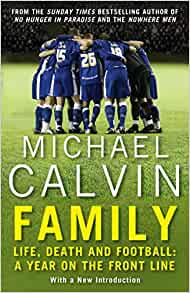 1 The Collected Works of Mike Calvin
1 The Collected Works of Mike Calvin 6
6  10
10  When the 2011/12 FA Cup Fourth Round begins on Friday night there will be two fixtures taking place. The first of these will see Watford take on Spurs at Vicarage Road. These two sides have met on four previous occasions in the FA Cup and Spurs have triumphed in all of them. Interestingly, the first two ever games between these clubs took place in the FA Cup. In January 1922 in the Second Round, Tottenham triumphed 1-0 at White Hart Lane and in 1939 an emphatic 7-1 win for Spurs in the Third Round. The most famous of the FA Cup meetings came in the 1986/87 season when the teams met in a Semi-Final tie at Villa Park. Tottenham finished comfortable 4-1 winners with Steve Hodge bagging a brace to add to goals from Clive Allen and Paul Allen. Malcolm Allen scored The Hornets goal. The last meeting between these team came in the Third Round in 1999 at Spurs, with the home side convincing 5-2 winners.
When the 2011/12 FA Cup Fourth Round begins on Friday night there will be two fixtures taking place. The first of these will see Watford take on Spurs at Vicarage Road. These two sides have met on four previous occasions in the FA Cup and Spurs have triumphed in all of them. Interestingly, the first two ever games between these clubs took place in the FA Cup. In January 1922 in the Second Round, Tottenham triumphed 1-0 at White Hart Lane and in 1939 an emphatic 7-1 win for Spurs in the Third Round. The most famous of the FA Cup meetings came in the 1986/87 season when the teams met in a Semi-Final tie at Villa Park. Tottenham finished comfortable 4-1 winners with Steve Hodge bagging a brace to add to goals from Clive Allen and Paul Allen. Malcolm Allen scored The Hornets goal. The last meeting between these team came in the Third Round in 1999 at Spurs, with the home side convincing 5-2 winners.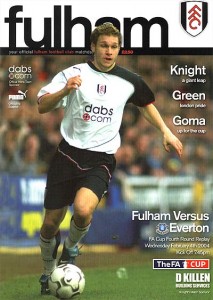 The other game will see Fulham travel to Goodison Park to take on Everton. For Fulham fans of a certain age this fixture will bring back memories of the Fifth Round tie that took place back in February 1975. A game which pitched then Second Division Fulham against the First Division leaders. It was to be an epic game that was part of an incredible 11 game journey by the men from Craven Cottage that took them to the 1975 FA Cup Final against West Ham United. Coincidentally, as was the case with Watford v Tottenham, the first two occasions Everton and Fulham met was also in the FA Cup. Everton first hosted Fulham in January 1926 in the Third Round. After a draw at Goodison, Fulham won the replay 1-0. It was over twenty years before these two clashed again, and on this occasion it was a Fifth Round tie in London in 1948. The game went to a replay and Fulham emerged 1-0 winners. In February 1975 and again at the Fifth Round stage, Fulham travelled to the North West and came away with a 2-1 victory courtesy of two Viv Busby goals. The last meeting was in the Fourth Round in 2004. The game at Goodison looked to be slipping away from Everton as they were behind 1-0 to a Sean Davis goal. However, in the dying minutes Francis Jeffers scored to ensure a replay. As in the first game Everton went behind and again Jeffers equalised in the dying minutes. However, Steed Malbranque was the Fulham hero as he scored to sent The Cottagers through 2-1.
The other game will see Fulham travel to Goodison Park to take on Everton. For Fulham fans of a certain age this fixture will bring back memories of the Fifth Round tie that took place back in February 1975. A game which pitched then Second Division Fulham against the First Division leaders. It was to be an epic game that was part of an incredible 11 game journey by the men from Craven Cottage that took them to the 1975 FA Cup Final against West Ham United. Coincidentally, as was the case with Watford v Tottenham, the first two occasions Everton and Fulham met was also in the FA Cup. Everton first hosted Fulham in January 1926 in the Third Round. After a draw at Goodison, Fulham won the replay 1-0. It was over twenty years before these two clashed again, and on this occasion it was a Fifth Round tie in London in 1948. The game went to a replay and Fulham emerged 1-0 winners. In February 1975 and again at the Fifth Round stage, Fulham travelled to the North West and came away with a 2-1 victory courtesy of two Viv Busby goals. The last meeting was in the Fourth Round in 2004. The game at Goodison looked to be slipping away from Everton as they were behind 1-0 to a Sean Davis goal. However, in the dying minutes Francis Jeffers scored to ensure a replay. As in the first game Everton went behind and again Jeffers equalised in the dying minutes. However, Steed Malbranque was the Fulham hero as he scored to sent The Cottagers through 2-1.
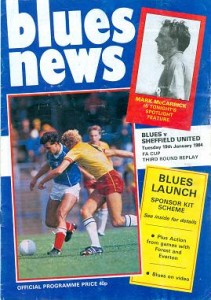 In terms of the FA Cup, this will be The Blades fourth tie this season and in the last round Sheffield United put an end to non-league Salisbury City’s adventure 3-1, whilst Birmingham put out Midlands rivals 1-0 in a replay at Molineux. These clubs have met previously in the FA Cup on three occasions and on each occasion Birmingham City have emerged as winners. The Blues won 2-1 in 1933/34, 3-1 after a replay in 1952/53, with the most recent tie in the 1983/84 season. In a Third Round tie at Bramall Lane, then Third Division Sheffield United held First Division Birmingham City to a 1-1 draw, before The Blues emerged 2-0 winners in the replay.
In terms of the FA Cup, this will be The Blades fourth tie this season and in the last round Sheffield United put an end to non-league Salisbury City’s adventure 3-1, whilst Birmingham put out Midlands rivals 1-0 in a replay at Molineux. These clubs have met previously in the FA Cup on three occasions and on each occasion Birmingham City have emerged as winners. The Blues won 2-1 in 1933/34, 3-1 after a replay in 1952/53, with the most recent tie in the 1983/84 season. In a Third Round tie at Bramall Lane, then Third Division Sheffield United held First Division Birmingham City to a 1-1 draw, before The Blues emerged 2-0 winners in the replay. The Blades FA Cup run came to an emphatic end at the hands of Birmingham City today. To an extent the score-line doesn’t reflect the part United played in this game, although they did at times contribute to their own downfall today. The Blades opened the game very positively and dominated the opening fifteen minutes. Ched Evans, Lee Williamson and Stephen Quinn were causing problems for Birmingham and with over 18,000 in the ground their was a terrific atmosphere inside Bramall Lane. However, with their first corner of the game, Nathan Redmond was picked out and his shot flashed into the net to give The Blues a lead against the run of play. Birmingham suddenly looked a different side, who seemed first to every loose ball and eager for more goals. The Blades were now playing far deeper and allowed The Blues space in midfield. On a couple of occasions Redmond drove at the United defence, but shot wastefully wide. Chris Burke too was coming more into the game and getting dangerously down the flanks. On 38 minutes Burke was involved in getting wide again and his cross was efficiently swept past Simonsen by Adam Rooney to put City 2-0 up, as they cruised towards half-time.
The Blades FA Cup run came to an emphatic end at the hands of Birmingham City today. To an extent the score-line doesn’t reflect the part United played in this game, although they did at times contribute to their own downfall today. The Blades opened the game very positively and dominated the opening fifteen minutes. Ched Evans, Lee Williamson and Stephen Quinn were causing problems for Birmingham and with over 18,000 in the ground their was a terrific atmosphere inside Bramall Lane. However, with their first corner of the game, Nathan Redmond was picked out and his shot flashed into the net to give The Blues a lead against the run of play. Birmingham suddenly looked a different side, who seemed first to every loose ball and eager for more goals. The Blades were now playing far deeper and allowed The Blues space in midfield. On a couple of occasions Redmond drove at the United defence, but shot wastefully wide. Chris Burke too was coming more into the game and getting dangerously down the flanks. On 38 minutes Burke was involved in getting wide again and his cross was efficiently swept past Simonsen by Adam Rooney to put City 2-0 up, as they cruised towards half-time.
